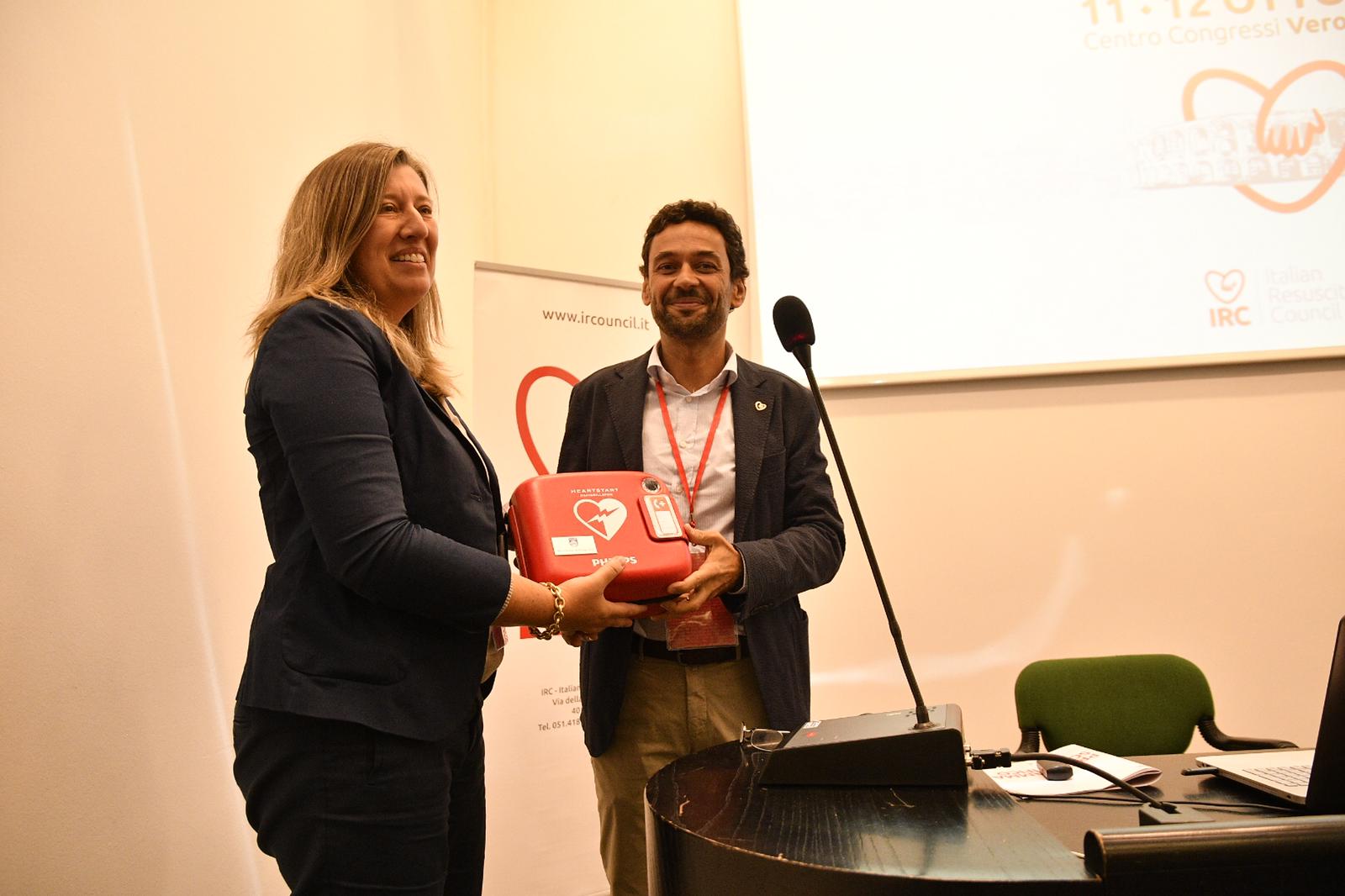
Philips donates the AED number two-million to the IRC. Lifesaving education at first place!
The Italian Resuscitation Council received the defibrillator number two-million manufactured by Philips. What will be the destiny of this defibrillator?
The International Leader in Health Technology Philips has donated the automated external defibrillator number two-million to the Italian Resuscitation Council. This achievement marks a major milestone in Philips’ continued efforts to combat sudden cardiac arrest (SCA), reaffirming the company’s commitment to providing empowered heart care across the health continuum.
Commenting on the donation, Andrea Scapigliati – Italian Resuscitation Council President – “We are honoured to receive this device, which is so meaningful for fighting cardiac arrest. We are proud of this donation and it stimulates us in doing even more efforts. We will find a school, through contest participation, where to install this defibrillator.”
Simona Comandè, General Manager of Philips Italy, Israel and Greece, declared: “Donating the defibrillator number two-million produced by Philips in Italy is a source of great pride for me, as it represents a milestone in a long journey of innovation that sees us as world leaders in the development of solutions for emergency medicine and cardiac resuscitation, today. In fact, our automatic external defibrillators have been helping to save every day for almost 20 years, thanks to reliable and easy-to-use technology, by professionals and not.” Cardiac arrests can happen anywhere, at any time, and bystander intervention and treatment with an AED has been shown to increase the survival rate by three times.
How to use a defibrillator?
Despite the widespread availability of AEDs today, people are not quite aware of AEDs, don’t know how easy they are to use and may still hesitate to intervene when someone is experiencing an SCA. Immediate defibrillation is the one and only way to save a person’s life in such cases. Philips aims to raise awareness around cardiovascular diseases (CVD) and cardiac events while showcasing the user-friendliness and importance of AEDs besides encouraging people to take personal responsibility for leading heart-healthy lives.
According to a recent study of Prospective Urban Rural Epidemiology (PURE) conducted in 21 countries across five continents, CVD continues to be one of the leading causes of death across the world. As a leader in the prevention, diagnosis and treatment of cardiovascular diseases, Philips offers a comprehensive range of cardiology technology, workflow solutions and services that enable connected care across the health continuum. The company’s unique and strong portfolio of systems, smart devices, software and services in image-guided therapy, combine to offer healthcare providers with sophisticated, procedure-oriented solutions in cardiology.
A pioneer in AED innovation and reliability
Philips’ HeartStart OnSite & Heartstart FRx made the implementation of early AED programs in communities, schools and businesses much easier. The Philips HeartStart AEDs provides real-time guidance through simple, step-by-step voice commands, an audible metronome and CPR coaching to help guide the treatment of a suspected sudden cardiac arrest. With easy set-up, clear voice prompts, and rugged design, these AEDs are designed to be used with minimal or no prior training.
Philips was also the first to introduce an AED for pediatric use and was a pioneer in providing AEDs for use in aeroplanes. Today, Philips AEDs are available across the globe, onboard major airlines, airports, in major hotels, in Fortune 100 companies, and in the locker rooms of professional sports teams worldwide.


